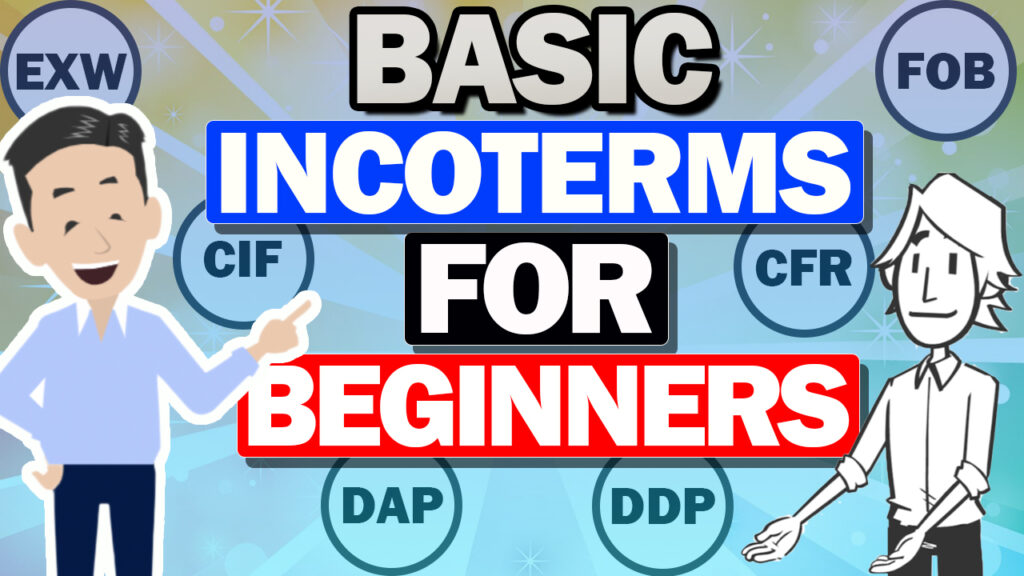
Audio Player
 Neko Senpai
Neko Senpai About “How to determine Incoterms” !
 Kamome Senpai
Kamome Senpai This video takes 7min. and 24sec. !
Video of This Article
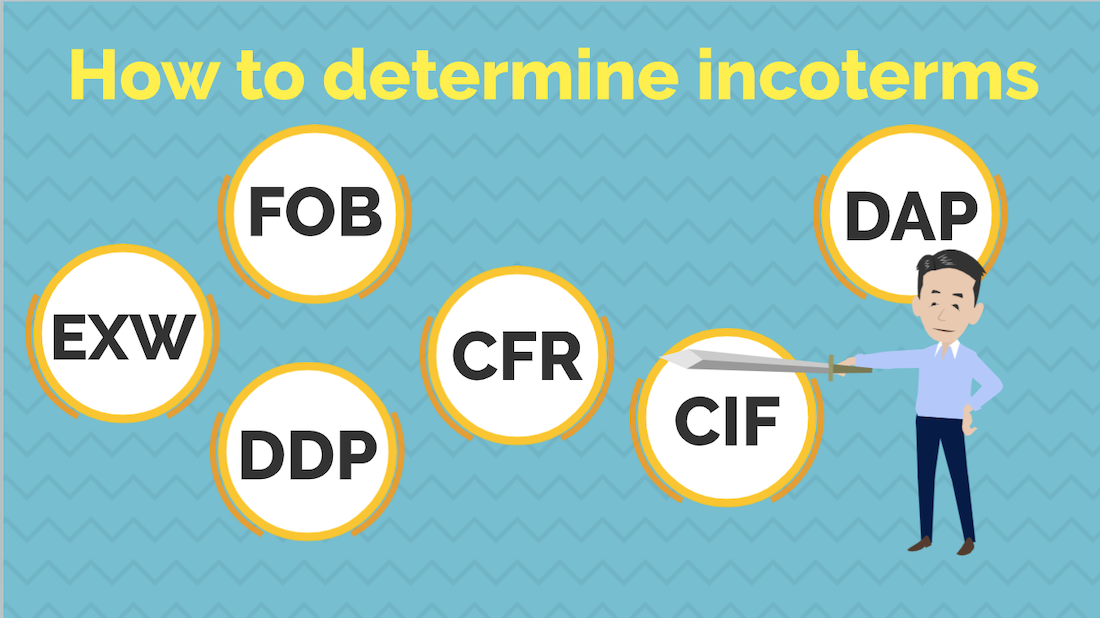
Hello, this is IINO.
In this video, I would like to talk about how to determine Incoterms in trade transactions.
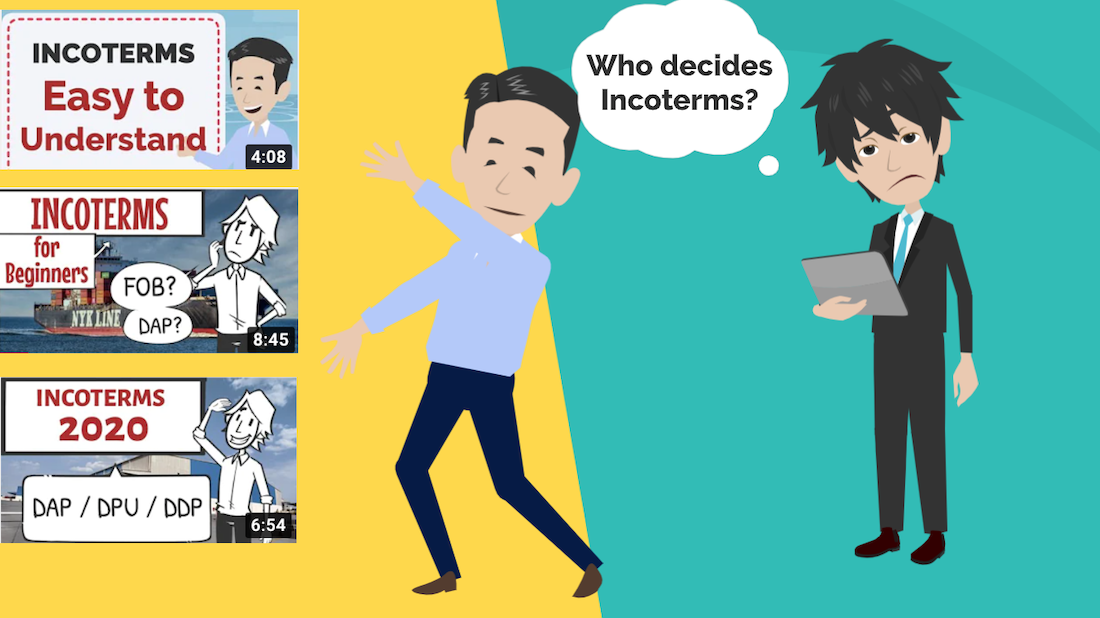
In this channel, we have several videos explaining Incoterms.
So, if you have understood the rules of Incoterms, but you may be wondering, “Who decides Incoterms?”
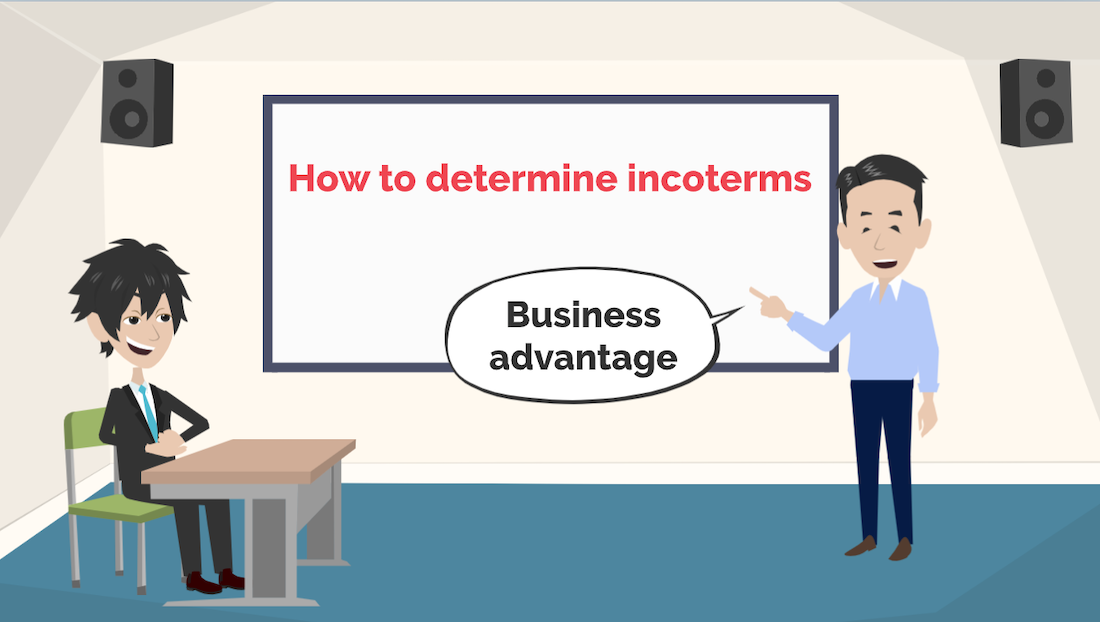
This is an unexpected blind spot for beginners in trade. There are cases which knowing about it will give you a business advantage, therefore I will explain it in detail in this video.
So let’s get started.
Basic Concept of Incoterms
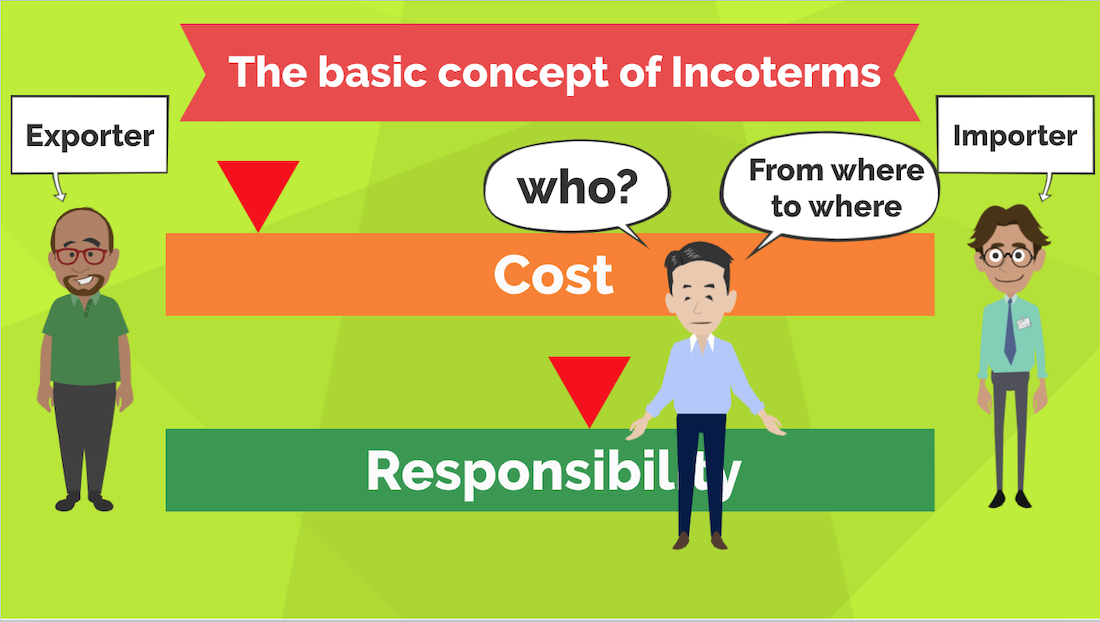
First, let me explain the basic concept of Incoterms. Incoterms are rules agreed upon between an exporter and an importer, clarifying who and from where to where bears the “cost” and “responsibility” for the transportation goods.
When and How decided?
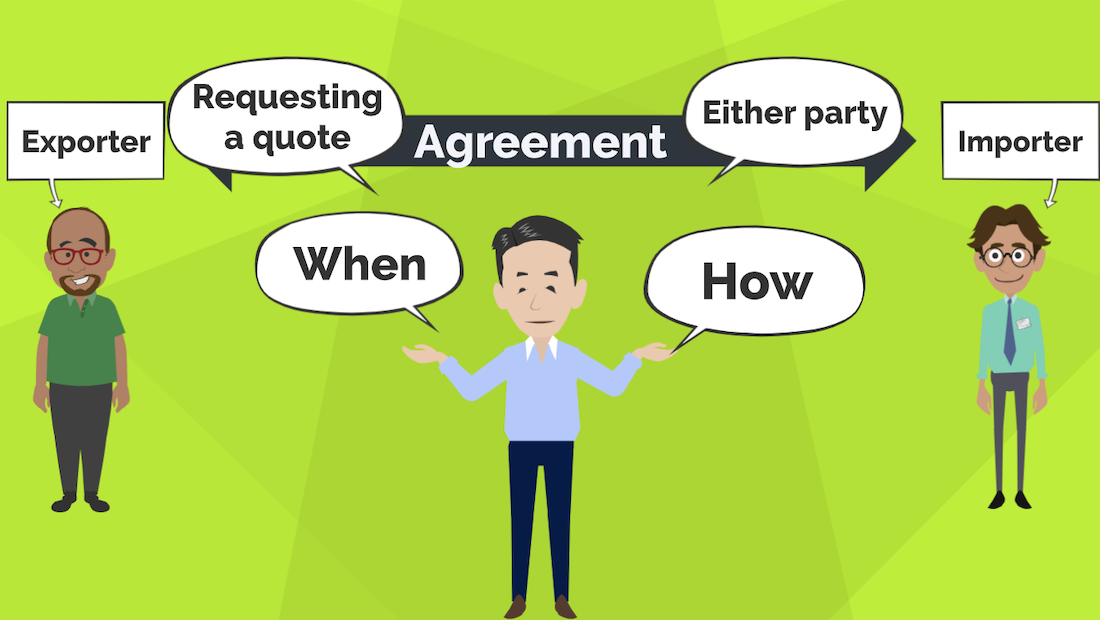
I explained that Incoterms are agreed upon between the exporter and importer, but when and how are they decided?
Either party will suggest this at the time of requesting a quote.
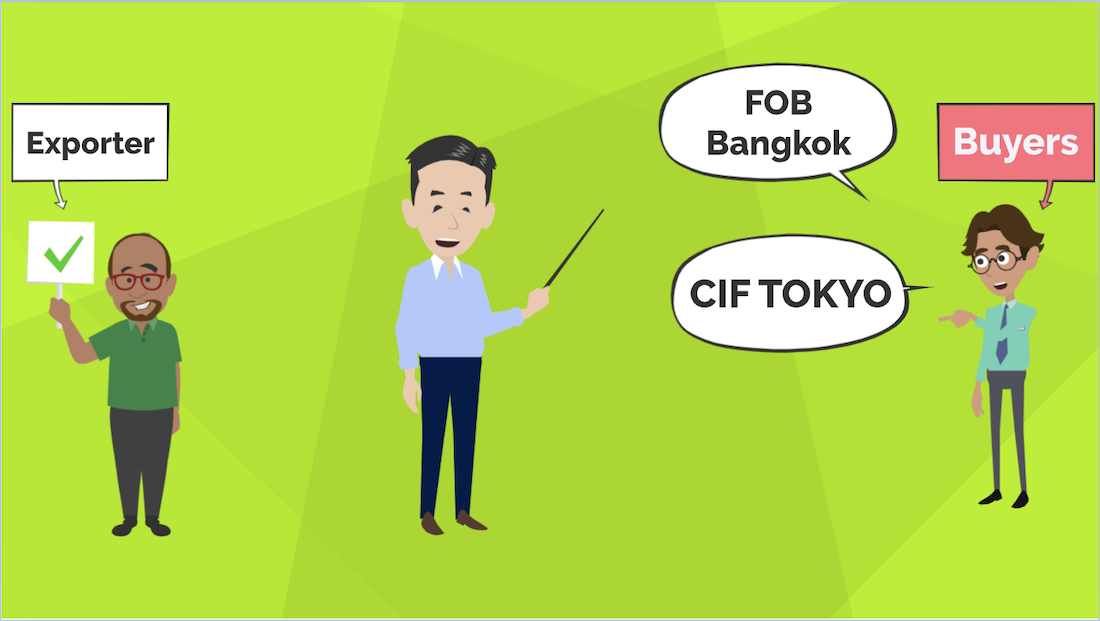
When the importers, the so-called buyers, ask for a quotation, they tell, for example, that they would like a quotation in FOB Bangkok or in CIF Tokyo.
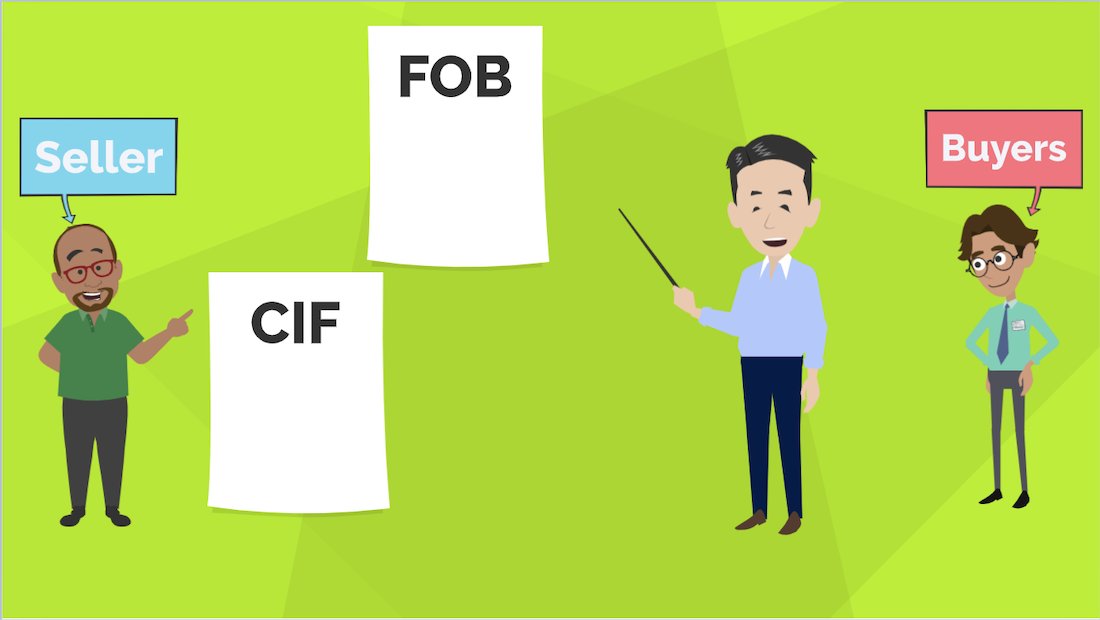
Or, when the exporter or seller tell that the price of this product is like this, they may give you the FOB. price, or they may politely calculate the CIF price to the port of the other country and give it to you.
Prices including Incoterms
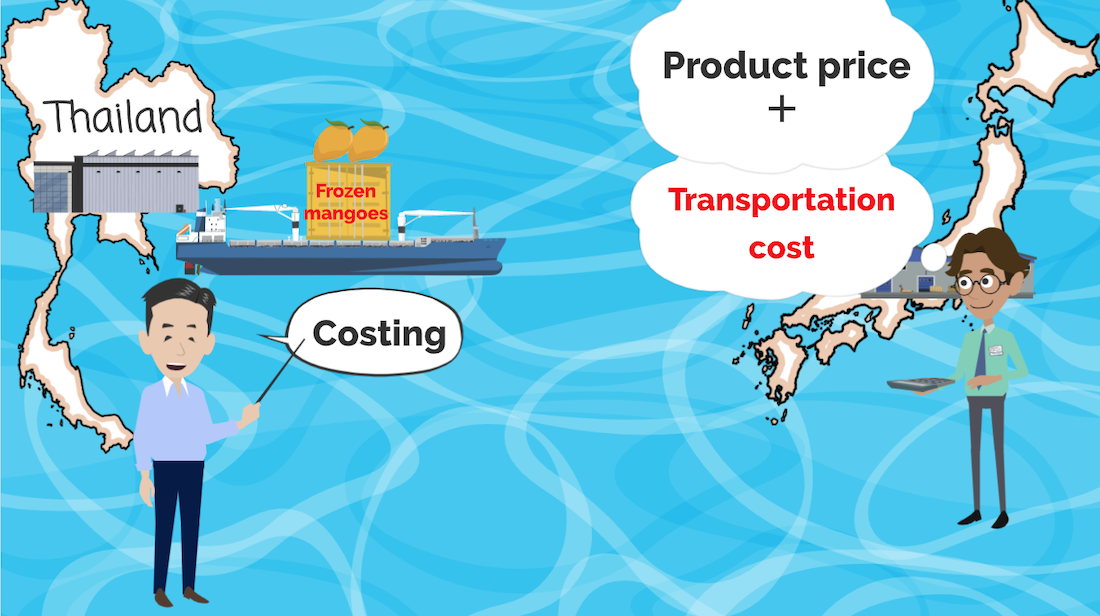
Here, I will explain about the price including Incoterms. For example, let’s say you are shipping frozen mangoes from a factory in Thailand to a warehouse in Tokyo, Japan.
When the importer calculates the cost to sell the product in Japan, he needs to check the “transportation cost” from the factory in Thailand to the warehouse in Tokyo in addition to the product price.
Product Price in EXW
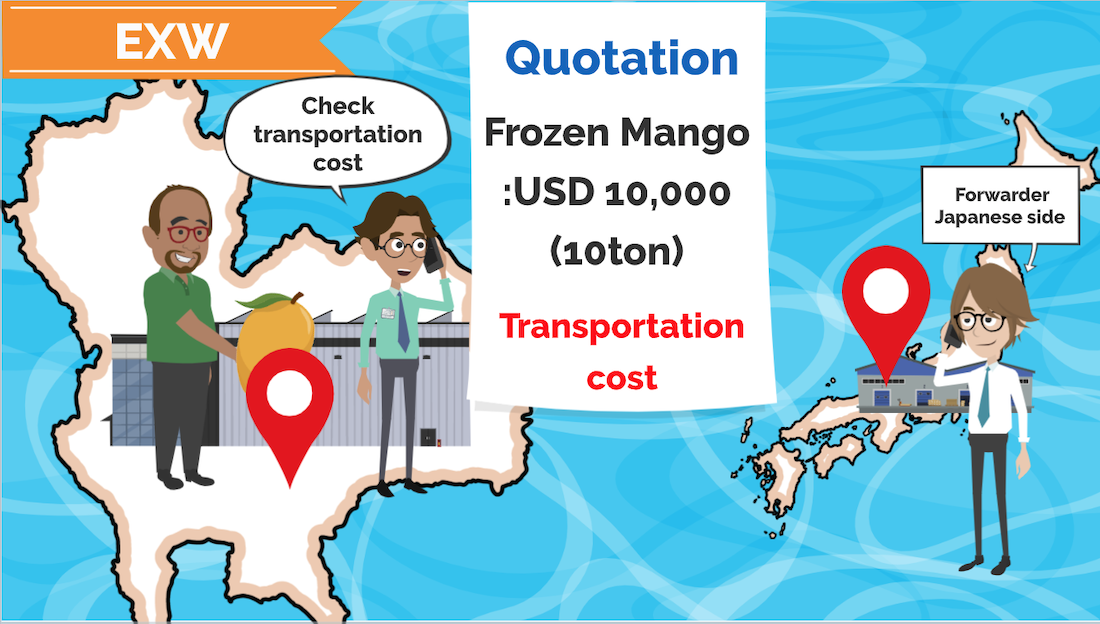
For example, in case the quotation in Ex works, the exporter will give you a quotation that does not include the transportation cost, because Ex works is the condition of the delivery at the exporter’s factory
At this time, the importer has to check the transportation cost by himself in addition to the product price.
He needs to ask the forwarder on the Japanese side with the factory’s address in Thailand and the delivery address in Tokyo to confirm the cost.
Product Price in FOB
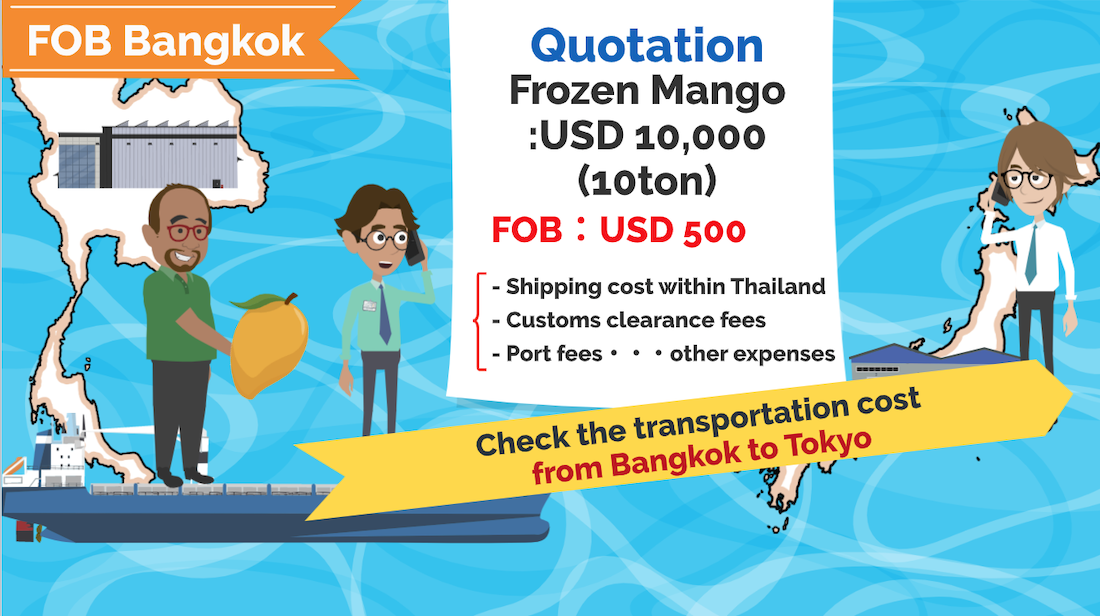
Next, in case the quotation in FOB Bangkok, FOB is the condition that the cargo is delivered on board at the port of the exporter.
In this case, the exporter submits a quotation that includes shipping cost within Thailand to the port of Bangkok, customs clearance fees, port fees and other expenses in addition to the product cost.
The importer will check the transportation cost from the port in Bangkok to the warehouse in Tokyo by himself.
Product Price in CIF
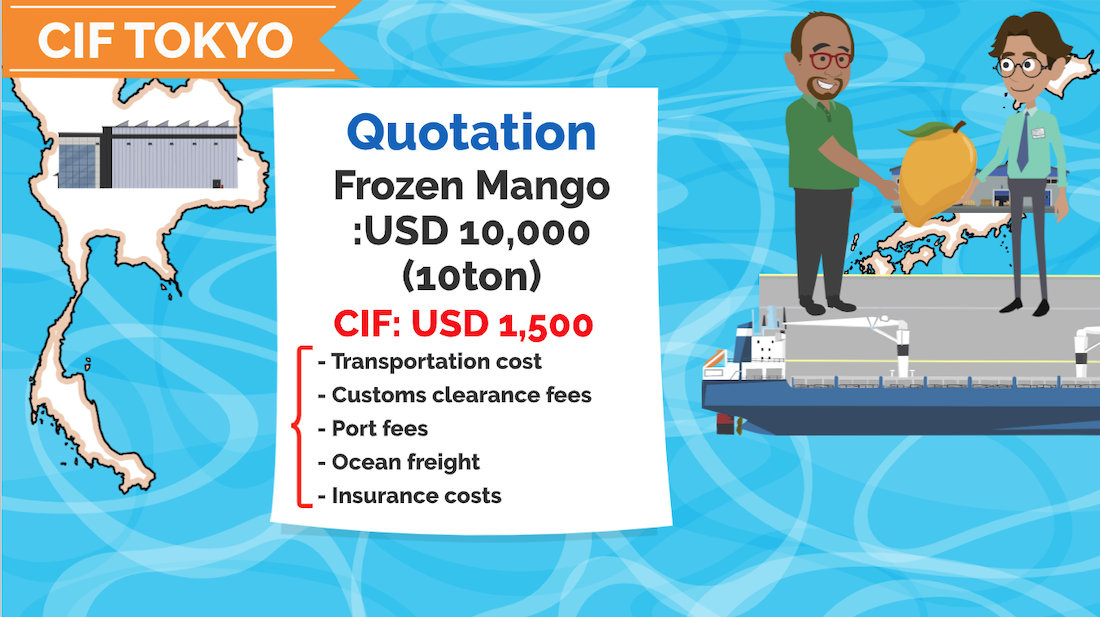
Then, in case the quotation in CIF TOKYO, CIF is the condition for receiving the cargo at the port of the importer.
In this case, the exporter submits a quotation that includes transportation cost within Thailand to the port in Tokyo, export customs clearance fees, the port fees on the export side, ocean freight and insurance costs.
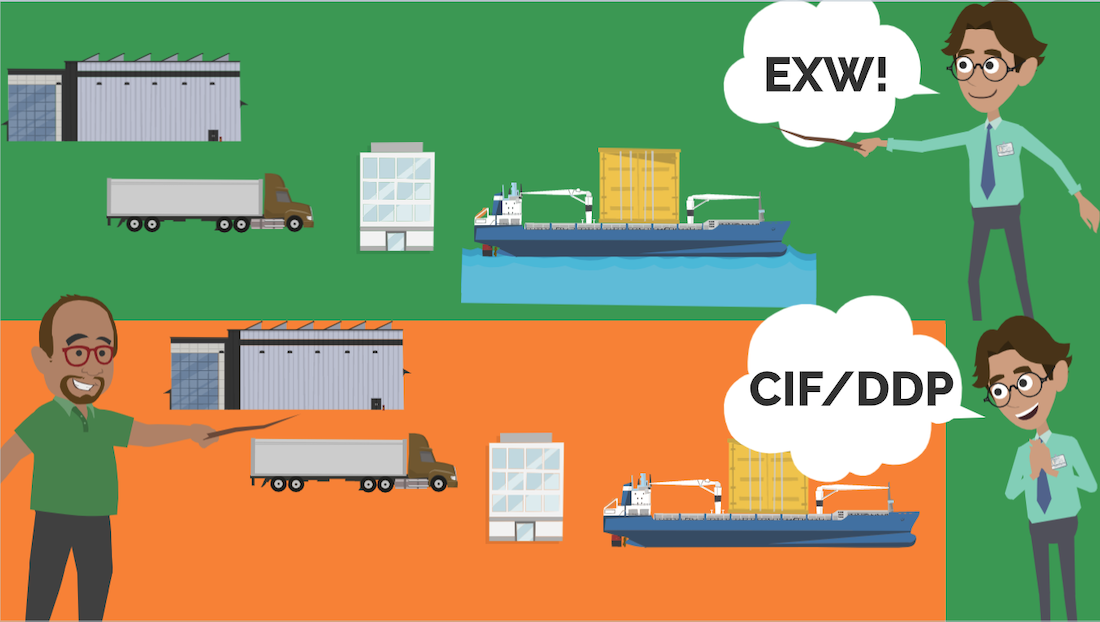
The better the importer is at trade, the more he can specify the Ex works and control all the logistics from the factory by himself.
On the other hand, if you are not very good at trade, you can leave the transportation to the exporter, such as CIF or DDP.
Strengths and Weaknesses of Trade
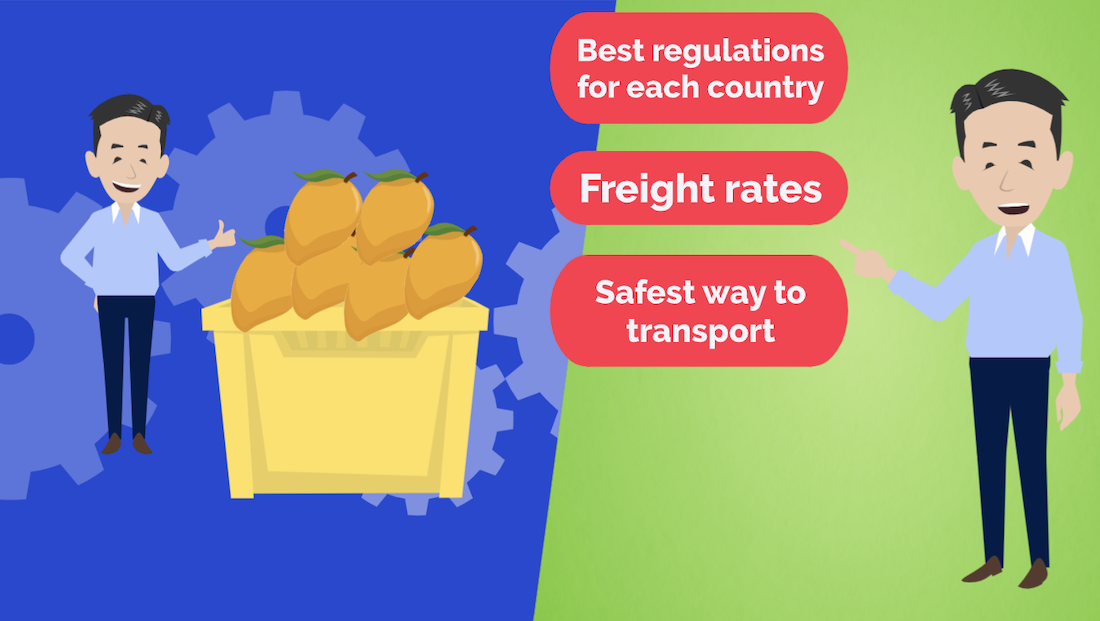
Let’s discuss these strengths and weaknesses of trade in more detail.
If you frequently import and export a particular product, you will become familiar with the trade transaction.
You would choose the best regulations for each country, freight rates and the safest way to transport the goods based on your experience.
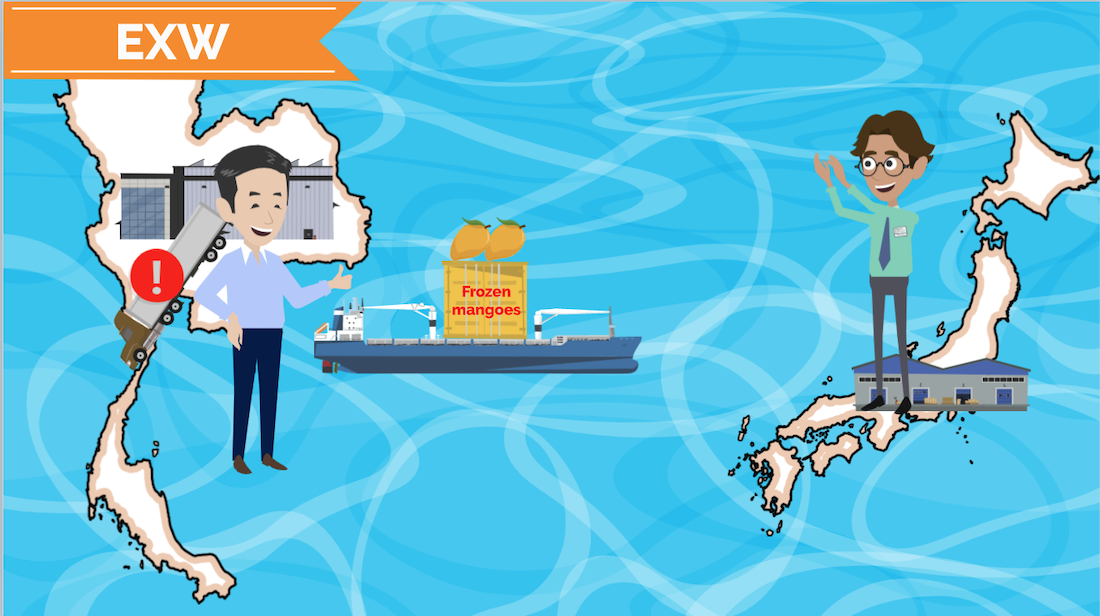
For example, in case that you import frozen mangoes from Thailand to Japan in Ex works, as explained earlier, you need to control the transportation within Thailand from Japan.
It would be difficult that there is no forwarder you are doing business with will handle the transportation in Thailand without any problem, even if something happens.
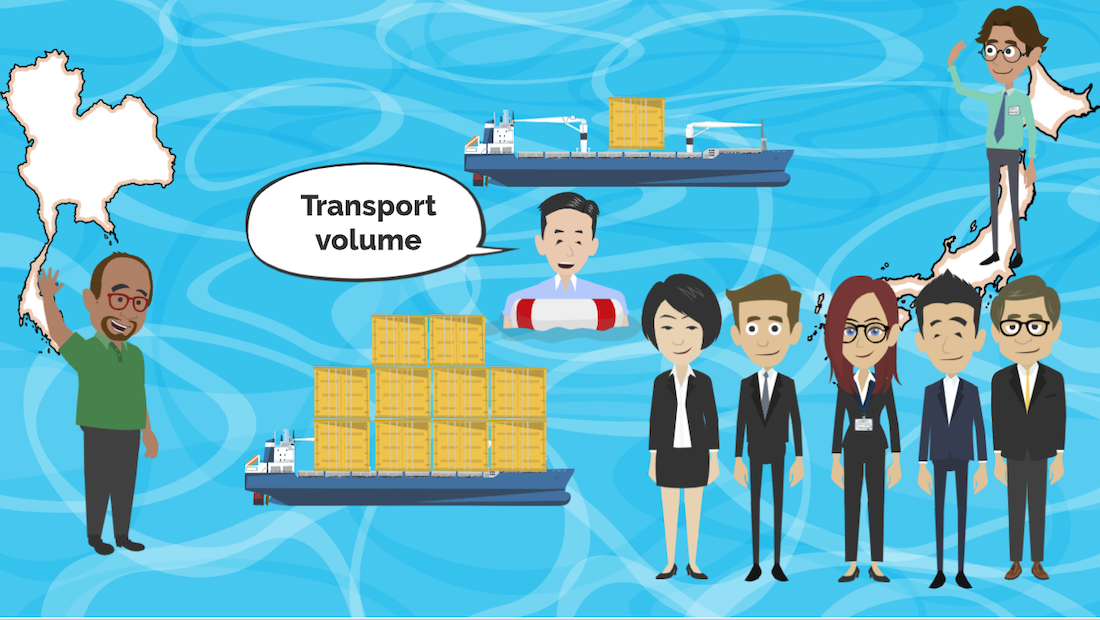
However, there is the case that the exporter has multiple customers in Tokyo and he may be transporting 10 containers from Bangkok to Tokyo every month.
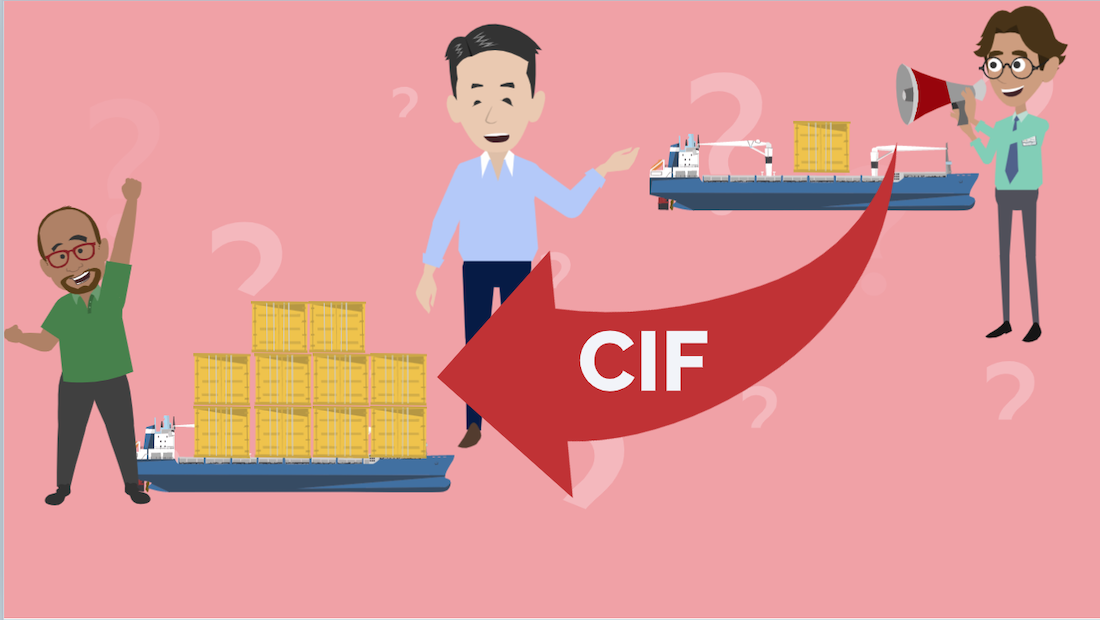
In this case, exporter or importer, which one will get a more price-effective ocean freight rate from the forwarder? In general, the one with the larger volume can negotiate more efficiently and get a more advantageous shipping cost.
So, when your handling volume is small and the exporter has multiple trading partners in the country, it may be more beneficial in some cases to ask the exporter for a CIF quote.
Cooperate a strong forwarder in a particular region
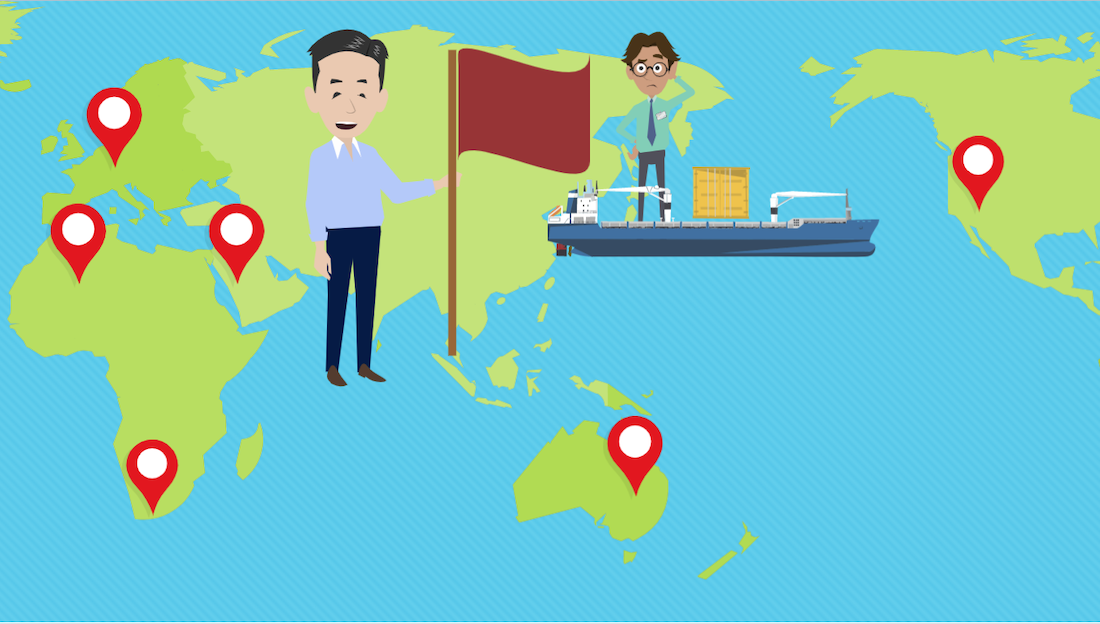
In other cases, it is also the point that,
If you can do business with a forwarder that is good at transporting goods from Thailand to Japan, even though you do not have a large volume of its shipment, you can get beneficial shipping costs.
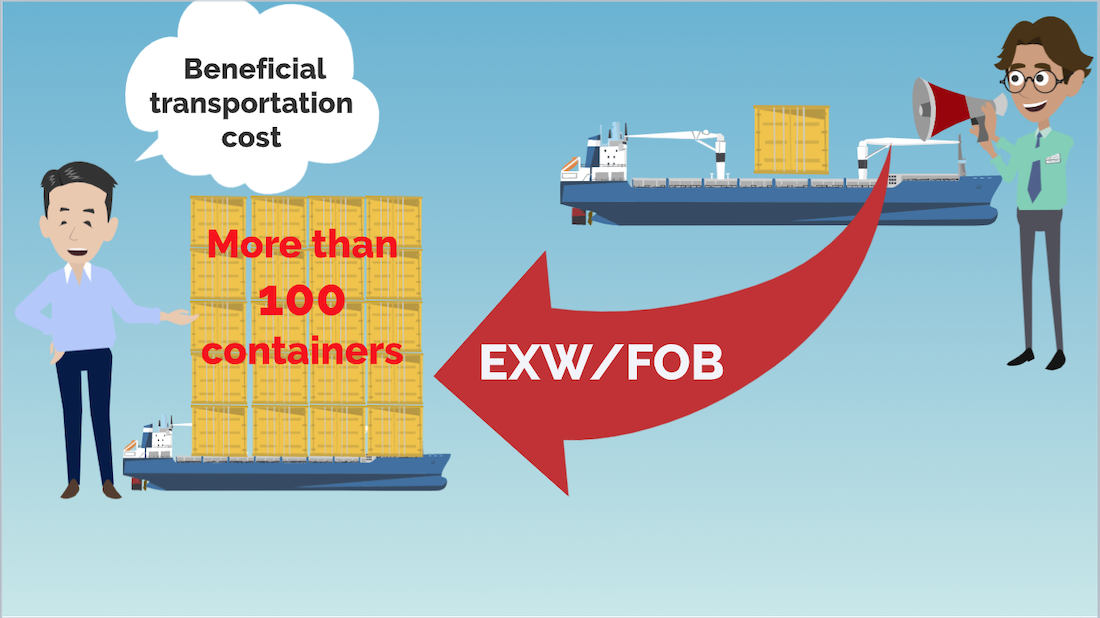
In this case, even if your company only handles one shipment per month, you can use Ex works or FOB.
In our case, we export more than 100 containers per month from Thailand to Japan, so if you contact us, we can offer you a beneficial transportation cost.
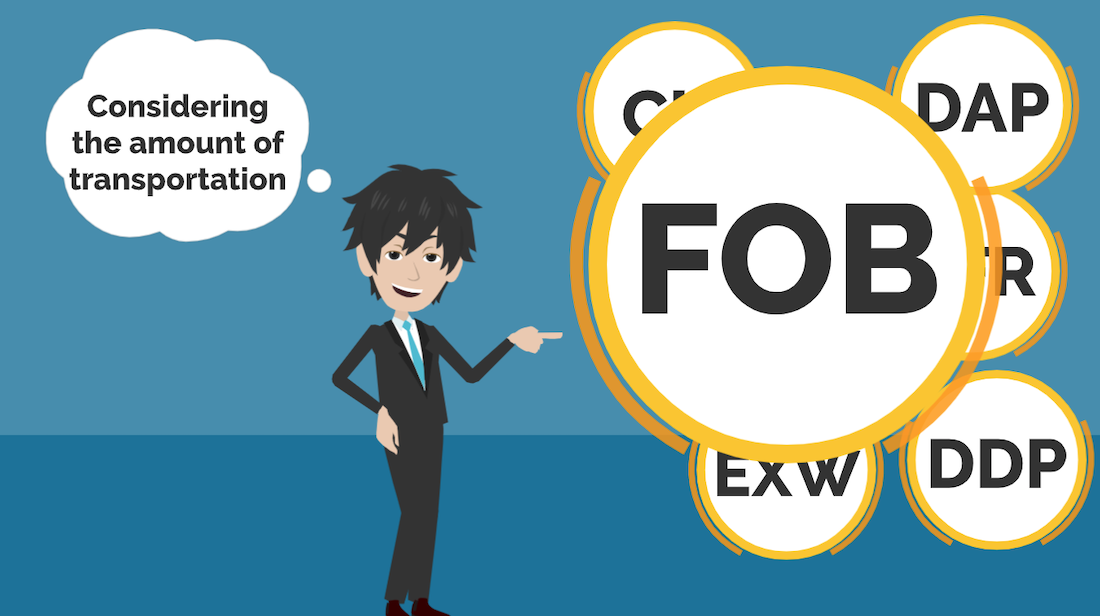
As you can see, the way to choose Incoterms in trade transactions is to select the conditions which are beneficial to your company while considering the amount of transportation handled by the exporter, importer and forwarder.
Summery
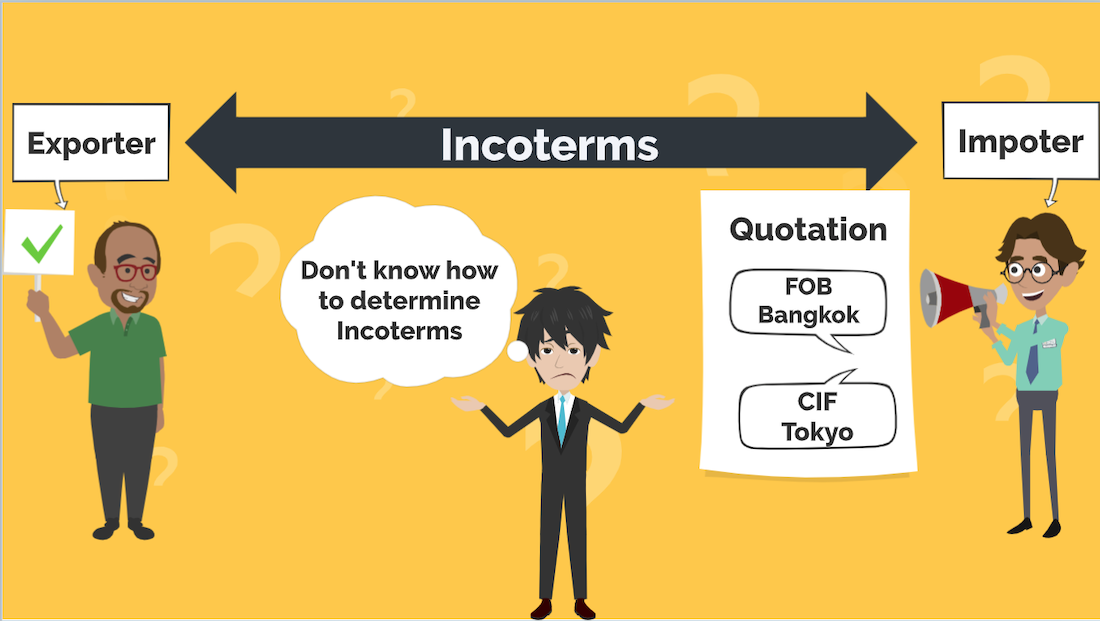
Now let’s summarize the contents of this video.
In this video, we explained for those who understand the rules of Incoterms but do not know how to determine Incoterms.
Incoterms are agreed upon between the exporter and importer. When the importer (buyer) makes a request for quotation, they specify the terms and conditions, such as FOB Bangkok or CIF Tokyo.
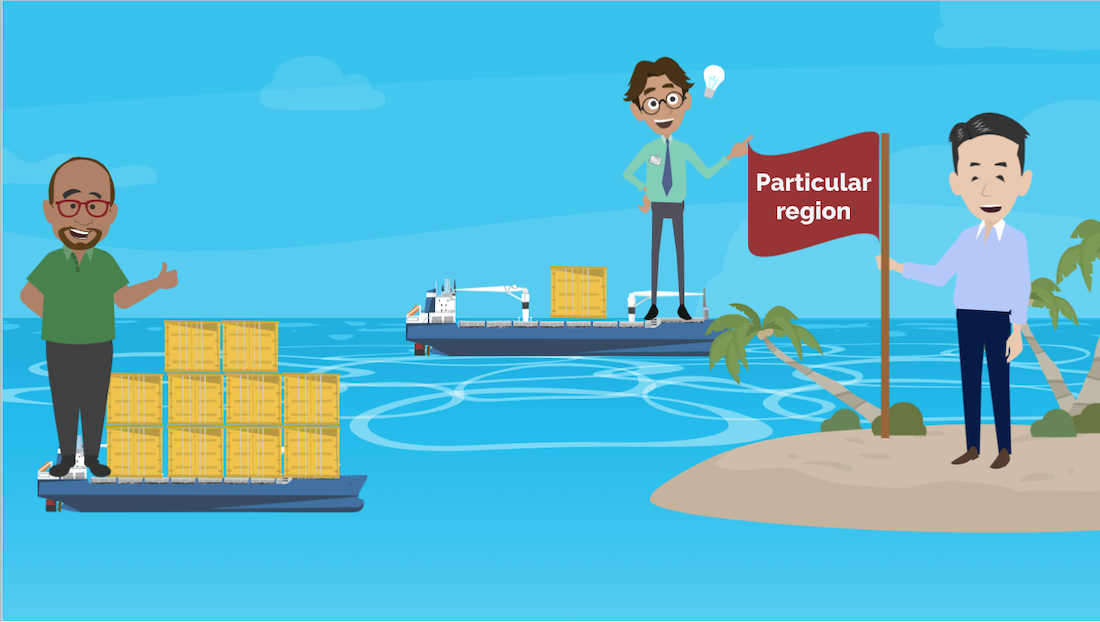
The information that will be advantageous in determining those terms is the volume handled by the exporter or importer. The more volume you transport, the more beneficial freight rates you will get.
Also, if you are dealing with a forwarder that specializes in a particular region, it is better to choose terms that are beneficial to your company.
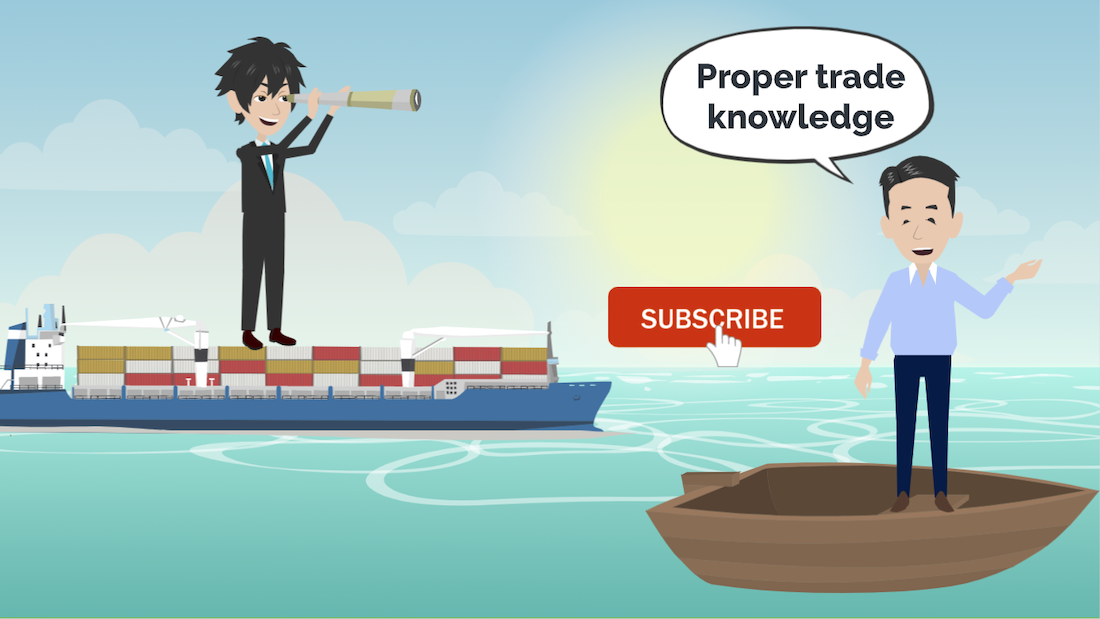
As explained in this video, your dealings are more likely to go well if you have the “proper trade knowledge” when you determine Incoterms.
I will be updating this channel regularly with valuable trade and logistics knowledge, so I hope you will subscribe to the channel and learn from it.
That’s all I have to say for this episode! Thank you very much!
Contact to IINO san

★Contact to IINO san★
—————————————–
FaceBook Page
https://www.facebook.com/iinosaan
Linked In Message
https://www.linkedin.com/in/shinya-iino/
Twitter DM
https://twitter.com/iino_saan
—————————————–
 IINO
IINO I’m waiting for your contact!





